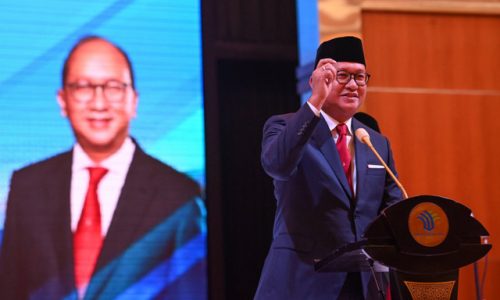PT Pertamina Geothermal Energy (PGE) and PT PLN Indonesia Power (PLN IP) are set to form a joint venture to integrate co-generation technology in the development of a 230 MW geothermal power plant (PLTP).
Eniya Listiani Dewi, Director General of New, Renewable Energy and Energy Conservation (EBTKE) at the Ministry of Energy and Mineral Resources (ESDM), said that co-generation technology allows waste heat from power plants, which is typically lost, to be converted into additional electrical energy.
The identified locations for this project include geothermal working areas (WKP) in Lahendong, North Sulawesi; Ulubelu, Lampung; Lumut Balai, South Sumatra; Hululais, Bengkulu; Kamojang, West Java; Sibayak, North Sumatra; and Sungai Penuh, Jambi.
“Geothermal potential, estimated at 24 GW, will be maximized by 2060. One breakthrough is the use of co-generation, which captures unused steam in the binary cycle model,” Eniya said as quoted in a statement on Wednesday, September 11, 2024.
Binary cycle technology, commonly used in geothermal power plants, employs a working fluid with a lower boiling point than water, such as isobutane or pentane. This fluid is heated by geothermal steam, vaporizes, and drives a turbine to generate electricity.
Additionally, residual heat in the secondary fluid can be used for heating or industrial processes. Co-generation in binary cycle geothermal plants increases efficiency by simultaneously producing electricity and heat.
PGE and PLN IP have signed a Memorandum of Understanding (MoU) and Joint Development Agreement (JDA) to realize this project. It will also be included in the 2024-2033 Electricity Supply Business Plan (RUPTL).
“We are optimistic that this project will contribute to the energy mix and should be listed as a priority in the 2024-2033 RUPTL,” Eniya concluded.









